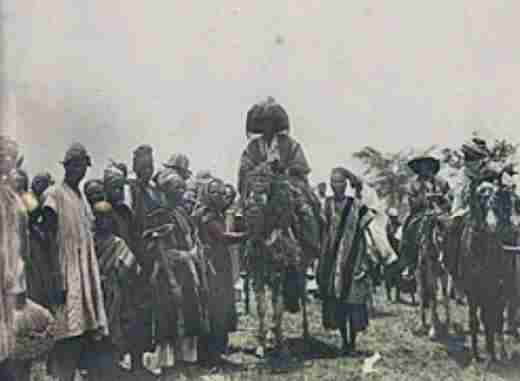It was British historians like Professor Robin Law, swayed by Reverend Samuel Johnson’s pretentious History of the Yorubas, who invented the claim that by the 1690s Oyo had become the greatest Empire in pre-Colonial Nigeria.¹ But all the earliest writers on Yoruba, including the Danmasanin Katsina² and Sultan Bello in the 1830s,³ never mention any Oyo Empire.
The first Europeans to visit Oyo itself, including Captain Hugh Clapperton⁴ and the Lander brothers,⁵ never wrote that Oyo was an empire. In 1668 Olfert Dapper described the Benin Kingdom in details but never mentioned any nearby great Oyo Kingdom.⁶
In fact, the first documented mention of Oyo was two years later in 1671.⁷ For hundreds of years no pre-Colonial European map mention any Oyo Kingdom, let alone Oyo Empire, even though the same European maps repeatedly depicted the Benin, Zegzeg, Borno, and other kingdoms of those days.
More importantly, there is no any documentary evidence that Oyo ever conquered its neighbours into an Empire.⁸ Dahomey, Akure, Ile Ife, Ilesha, the Owu, Ijesha, the Egba, Ijebu, the Ondos, the Owo, the Ugbo, the Ekiti, etc., were never part of any phantom Oyo Empire.⁹ Instead, in 1793 the Portuguese Resident Archibald Dalzel, wrote as a living witness that the Oyo Kingdom was part of the Nupe Empire and was still paying annual tributes to the Etsu Nupes at the end of the 18th century.¹⁰
How could Oyo had been the greatest Empire in pre-Colonial Nigeria by the 1690s when one hundred years later in the 1790s it was still a small kingdom paying annual tribute to the Etsu Nupes?
References:
1 – Law, Robin (1975). “A West African Cavalry State: The Kingdom of Oyo”. The Journal of African History. 16 (1): 1–15. doi:10.1017/S0021853700014079. ISSN 0021-8537. JSTOR 181095.
2 – Sheikh Muhammad ibn Massana’s book ‘Tuhfat i’Anbariyya’ quoted by Sultan Bello in Infaq al-Maysur, by Muhammed Bello, Edited by Abubakar Gummi, Published by Dar wa matabi al-Sha’b, Cairo, 1964.
3 – Infaq al-Maysur, by Muhammed Bello, Edited by Abubakar Gummi, Published by Dar wa matabi al-Sha’b, Cairo, 1964.
4 – Clapperton, H. (1829). Journal of a second expedition into the interior of Africa, from the Bight of Benin to Soccatoo. London: John Murray, 1829, p. 103.
5 – Lander, R. and Lander, J. (1832). Journal of an Expedition to Explore the Course and Termination of the Niger, vol. 1. London, pp. 78-79.
6 – Dapper, O. (1998). Description of Benin. University of Wisconsin Madison Africa, 1998.
7 – “Suite du Journal du Sieur d’El bee,” J. de Clodore (ed.), Relation de ce qui s’est passe dans les Selen et Terre-ferme da l’Andrique pendant la demiere guerre avec l’Angleterre (Paris, 1671), III, 557-558.
8 – Peel, J.D.Y. (2003). The Religious Encounter and the Making of the Yoruba. Indiana University Press, p. 30.
9 – CA2/056, James Johnson, 18 Sept 1879; CMS C/A2/ O49/36, D. Hinderer to secretaries, September 24, 1858; Burton, R. (1863). Abeokuta and the Camaroons Mountains: An Exploration, vol. I. London: Tinsley Brothers, p. 105.
10 – Dalzel, A. The History of Dahomy: An Inland Kingdom of Africa. Snowhill: Spilsbury and Son, p. 40.
| Author: | Ndagi Abdullahi |
|---|---|
| Royal Title: | Amana Nupe |
| Whatsapp Contact Only: | 08137982743 |
